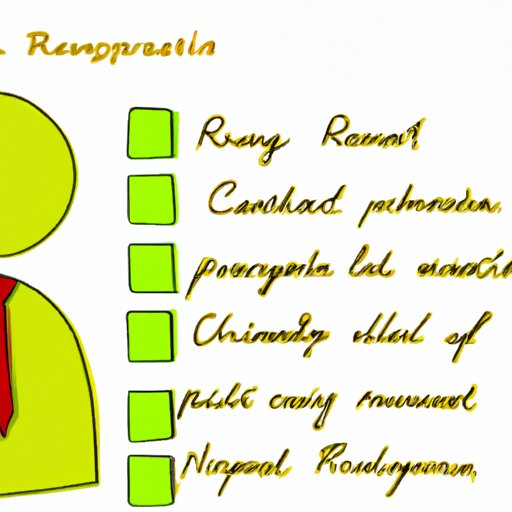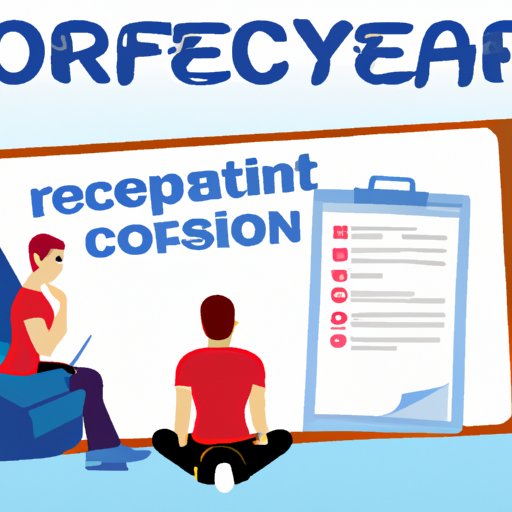Introduction
Recovery coaches have become an increasingly important part of the healthcare system as addiction issues continue to grow. A recovery coach is someone who helps individuals struggling with addiction to develop a plan for achieving sobriety. This type of work is both rewarding and challenging, and requires a special combination of skills and knowledge. For those looking to start their own recovery coaching business, there are several key steps to follow in order to be successful.
Definition of Recovery Coaching
Recovery coaching is a specialized form of therapy or counseling that focuses on helping individuals struggling with addiction to develop a plan for achieving sobriety. The process involves working closely with the individual to identify goals and objectives, create a path for achieving those objectives, and provide support along the way. Recovery coaches meet with clients in person or via video chat, and may provide one-on-one sessions or group meetings. They also provide education about addiction and recovery, and help individuals understand their options for treatment and resources for long-term success.
Benefits of Becoming a Recovery Coach
Becoming a recovery coach can be incredibly rewarding. Not only do you get to make a positive difference in people’s lives, but you also have the opportunity to build a successful business. As a recovery coach, you can set your own hours, choose your own clients, and determine your own fees. You also have the flexibility to offer a variety of services, such as individual counseling, group meetings, or educational seminars. Additionally, you have the potential to make a significant income, as the field of recovery coaching is growing rapidly.
Outline the Steps for Starting a Recovery Coach Business
If you’re considering starting a recovery coach business, there are several essential steps to take in order to ensure success. These include researching the field, developing a business plan, obtaining licensing and insurance, establishing professional networks, and marketing your services.
Research the Field
Before you dive into the world of recovery coaching, it’s important to take time to research the field. Read books, articles, and blogs related to the topic, and find out what other recovery coaches are doing. This will give you a better understanding of the industry, and will help you decide which type of services you want to offer. It’s also a good idea to attend conferences and events related to recovery coaching, as this will give you an opportunity to network with other professionals in the field.
Develop a Business Plan
Once you’ve done your research, it’s time to develop a business plan. Your business plan should include an overview of your services, a description of your target market, a budget for start-up costs, and a marketing plan. It’s also important to consider how you will differentiate yourself from other recovery coaches in the area. This could include offering unique services or packages, or providing additional resources such as online courses or workshops.
Obtain Licensing and Insurance
Depending on where you live, you may need to obtain a license or certification in order to practice as a recovery coach. It’s also important to purchase liability insurance to protect yourself in case of any legal issues. Be sure to research the licensing and insurance requirements in your state or province before you begin your business.
Establish Professional Networks
Networking is an important part of being a successful recovery coach. Start by joining professional organizations and attending industry events. You can also reach out to other recovery coaches and counselors to establish relationships and gain referrals. Additionally, consider volunteering your services at local treatment centers or attending community events related to addiction and recovery.
Market Your Services
Once you’ve established yourself in the field, it’s time to start marketing your services. Develop a website, create social media accounts, and join online forums related to recovery coaching. You can also advertise in local newspapers or magazines, or reach out to treatment centers and rehab facilities to let them know about your services. Finally, don’t forget to spread the word to family and friends – word-of-mouth can be one of the most powerful forms of marketing.

Explain the Required Qualifications for Becoming a Recovery Coach
In addition to having a passion for helping others and a desire to make a difference, there are certain qualifications that are necessary in order to become a successful recovery coach. These include both educational and experience requirements.
Education Requirements
Most states and provinces require recovery coaches to have a minimum of a bachelor’s degree in psychology, social work, or a related field. Some states may also require a master’s degree. In addition, some employers may prefer candidates who have completed a certificate program in recovery coaching.
Experience Requirements
While formal education is important, many employers also look for candidates who have personal experience with addiction. This could include having a family member or close friend who has struggled with addiction, or having your own experience with recovery. Additionally, having prior experience in the field of addiction or mental health can be beneficial.

Detail the Necessary Training and Certification Requirements
Once you have the necessary qualifications, it’s important to complete the necessary training and certification requirements. There are several types of training available, as well as certification programs. Depending on your state or province, these may be required in order to practice as a recovery coach.
Types of Training Available
There are a variety of training options available for those interested in becoming a recovery coach. These include online courses, in-person workshops, and intensive training programs. It’s important to research the different options and determine which type of training is best for you.
Certification Programs
In addition to completing a training program, you may need to become certified in order to practice as a recovery coach. Certification programs vary depending on the state or province, so be sure to research the requirements before enrolling in a program. Additionally, many certifying bodies require continuing education in order to maintain certification.

Highlight the Personal Characteristics Needed to be Successful in the Role
In addition to the necessary qualifications, there are certain personal characteristics that are essential for success as a recovery coach. These include empathy, patience, and respect.
Empathy
As a recovery coach, it’s important to be able to understand and relate to the struggles of your clients. This requires the ability to empathize with their experiences and put yourself in their shoes. Having a deep understanding of addiction and the recovery process is essential in order to effectively guide clients through the process.
Patience
Recovery is a long and difficult process, and it’s important to be patient with your clients. It’s not uncommon for setbacks to occur, and it’s important to be supportive and encouraging during these times. Being patient and understanding is essential in order to foster trust and promote long-term success.
Respect
Finally, it’s important to treat your clients with respect. This means listening to their concerns and honoring their decisions. Respect is essential in order to create a safe and supportive environment in which clients can feel comfortable sharing their thoughts and feelings.
Describe the Financial Investment Needed to Get Started
In addition to the educational and personal qualifications needed, there is also a financial investment required in order to get started as a recovery coach. This includes both start-up costs and ongoing expenses.
Start-up Costs
The start-up costs for a recovery coach business can vary greatly depending on the services you plan to offer. These costs typically include licensing and insurance fees, office supplies, marketing materials, and any software or technology needed to run your business. Additionally, you may need to hire staff or rent space if you plan on offering group sessions or workshops.
Ongoing Expenses
Once you’ve gotten your business off the ground, there are several ongoing expenses to consider. This includes marketing costs, as well as any fees associated with maintaining your certification. You may also need to pay for continuing education courses or workshops in order to stay up-to-date on the latest trends and techniques in the field.
Conclusion
Starting a recovery coach business can be a rewarding and fulfilling endeavor, but it’s important to be aware of the steps and qualifications needed to succeed. Research the field, develop a business plan, obtain licensing and insurance, establish professional networks, market your services, and be sure to have the necessary qualifications, training, and certification. Additionally, you must have the right personal characteristics, such as empathy, patience, and respect. Lastly, you must be prepared for the financial investment required to get started. With dedication and hard work, you can be on your way to building your own successful recovery coach business.
(Note: Is this article not meeting your expectations? Do you have knowledge or insights to share? Unlock new opportunities and expand your reach by joining our authors team. Click Registration to join us and share your expertise with our readers.)
